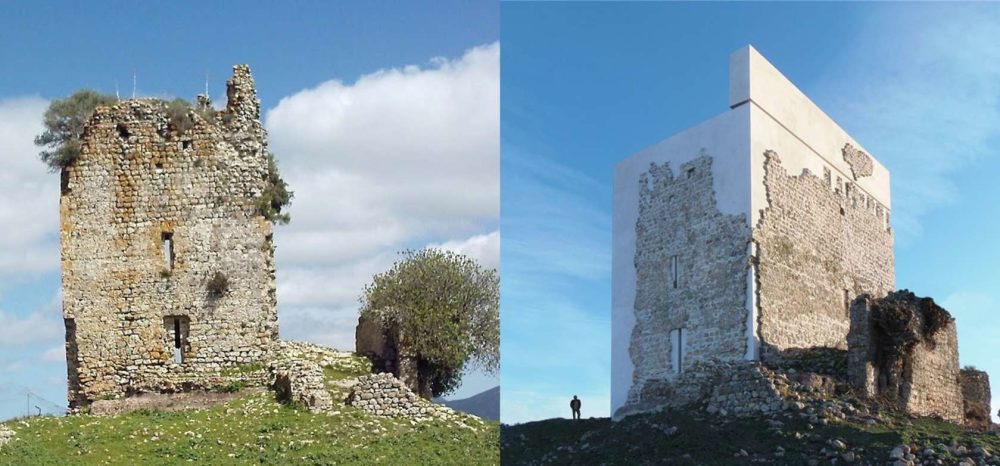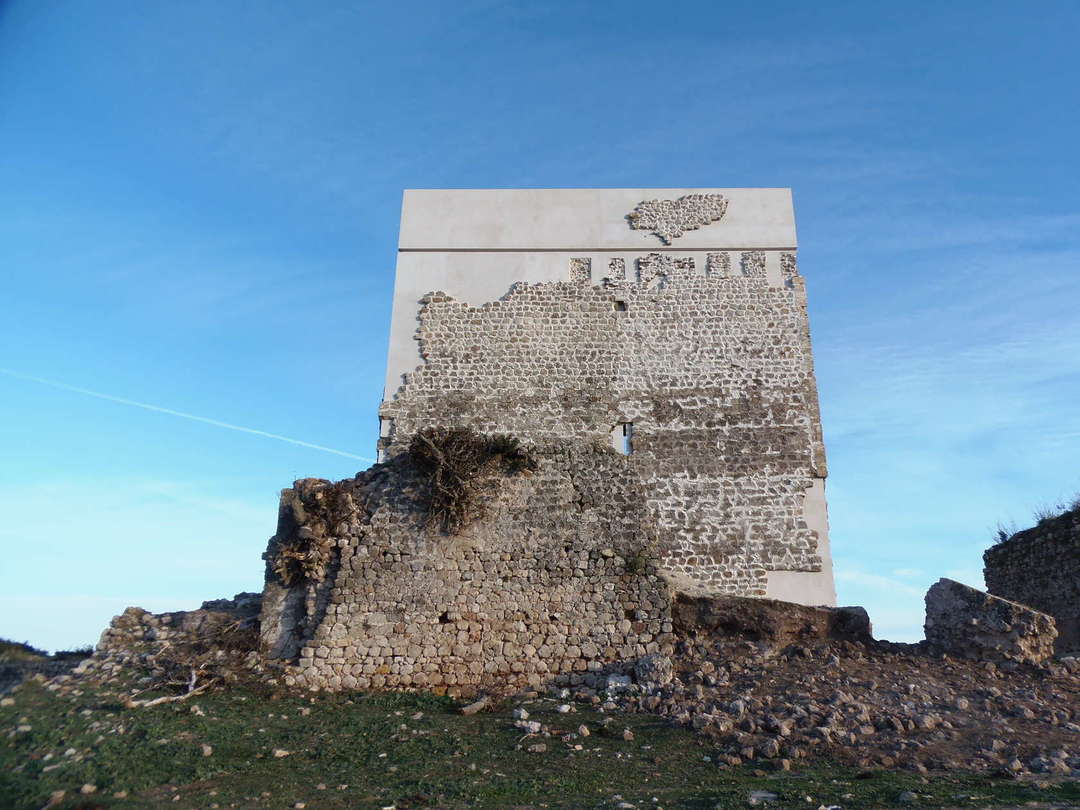
If you were ever in doubt about just how polarizing architecture can be, look no further than the radical restoration of Matrera Castle in Villamartin on the southeast coast of Spain. The transformation of crumbling stone ruins on Pajarete Hill outside of Cádiz went viral upon publication across a wide variety of media sites, with responses from readers ranging from considered adulation to unbridled outrage. Carquero Arquitectura’s remarkable project split the architectural community down the middle like never before.
In such a situation, the democratic nature of Architizer’s A+Awards comes into its own as the ultimate litmus test for contemporary architecture across the globe. Upon hearing that Matrera Castle was shortlisted for the awards in the Architecture +Preservation category, there was much bemusementfrom those at The Guardian, frequent commentators on the project and the controversy it has provoked in recent weeks. However, the results are now in, and the people have spoken: Carquero Arquitectura has triumphed in our public poll with a huge 52 percent of the total vote.
The Andalusian fortress tower — a local landmark with historical significance — had been severely damaged by heavy rains three years ago, making it structurally unstable and in urgent need of rescuing. Carquero Arquitectura’s proposal involved the use of locally sourced limestone with an outer coating of pale lime mortar and glass fiber, filling in the voids left behind over the decades and echoing the original volume. As the architects explain, “The essence of the project is not intended to be … an image of the future, but rather a reflection of its own past, of its own origin.”
This explanation and the startlingly altered aesthetics of the castle was met with outcries by many. “What the hell have they done?” exclaimed the provocative headline of The Guardian’s reactionary article, citing the Spanish heritage and conservation group Hispania Nostra, who emphasized that “foreigners have written to us saying they can’t understand why these follies — better described as heritage ‘massacres’ — still go on.”
On the other hand, the newspaper’s regular architecture critic Oliver Wainwright pointed out that the project actually follows in the footsteps of many savvy restorations involving the insertion of monochromatic surfaces and plain volumes to signify the difference between old and new. The works of David Chipperfield and Witherford Watson Mann — recipient of the 2013 Sterling Prize for a similarly striking adaptation of Astley Castle in Warwickshire, the UK — are cited as proof that strong, contemporary proposals can bring new life to a historic structure remaining reverential towards its treasured past.
ArchDaily commenter Stancu David reflected on the tendency towards outrage against architecture that dramatically changes the built environment they have become accustomed to. “I guess people criticize the new intervention because it changed the landscape they were used to and not because it is bad in itself,” says David. “The Eiffel Tower was also called a monstrosity, Haussman’s rebuilding of Paris was said to destroy the very fiber of what Paris was, and so on … ”
Whether the transformation of Matrera Castle left you outraged or enraptured, one thing is undeniable: The global appeal of the A+Awards can work to reveal the feelings of the public on a scale never before seen in the realms of architecture. It also serves as a fantastic cultivator of discourse on topical issues within the industry, getting people from every demographic talking about architecture. This can only be beneficial for the profession in the long run.
Congratulations to everyone at Carquero Arquitectura for their award, and we look forward to many more bold design statements in the coming year — however controversial they may be! Check out the full list of this year’s A+Award winners here.

